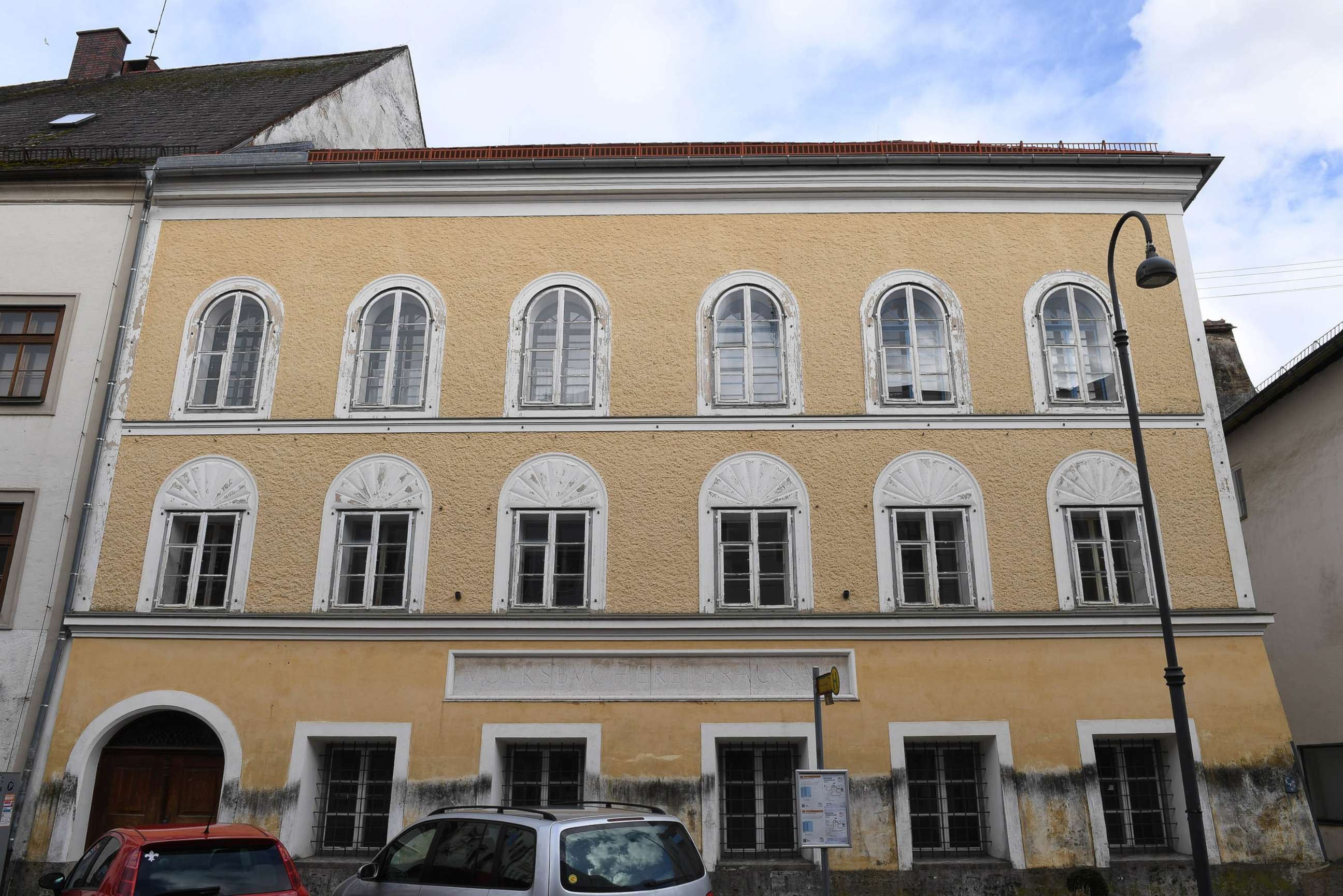Architectural competition to determine fate of Hitler's birthplace, Austria's top court rules
The Austrian government can now re-purpose the house Hitler was born in.
BERLIN -- After more than 70 years, the question of what to do with the house in which Adolf Hitler was born is significantly closer to being answered.
On Monday, Austria's Supreme Court ruled in favor of the national government, which had been locked in a legal battle with the owner of the house in Braunau am Inn, a small town near the German border.
The building, currently empty and a magnet for neo-Nazis, will be the subject of an architectural competition to determine its future use.
The Ministry of the Interior of Austria trumpeted the end of a lengthy legal battle with Gerlinde Pommer-Angloher, who owns the disputed property and claims it's worth much more than what the government paid her for it in 2016.She had been forced to sell it to the government for $910,000 but attempted to argue that it was worth almost $1.7 million.

"After the binding court decision in the compensation case, the legally necessary re-use of the Hitler birthplace can now be initiated in order to prevent any form of re-activation and National Socialist activities," Wolfgang Peschorn, Austria's interior minister, said in a statement released by the government Monday.
Hitler was born in the three-story, 17th century house in 1889. It was purchased and used by the Nazis who came to power in Austria in 1938. It was later transferred back to the original owners, Pommer-Angloher's family, and was used as a government-funded care center for people with disabilities.
However, the government ended that project in 2011, when Pommer-Angloher refused to renovate the building. Since then, she reportedly had rejected several offers from the government to purchase it, according to German broadcaster Deutsche Welle
Then, in 2016, the Austrian parliament voted to seize the house and drastically renovate it in order to stop neo-Nazis from visiting the site, which they had been doing since it became unoccupied in 2011.




